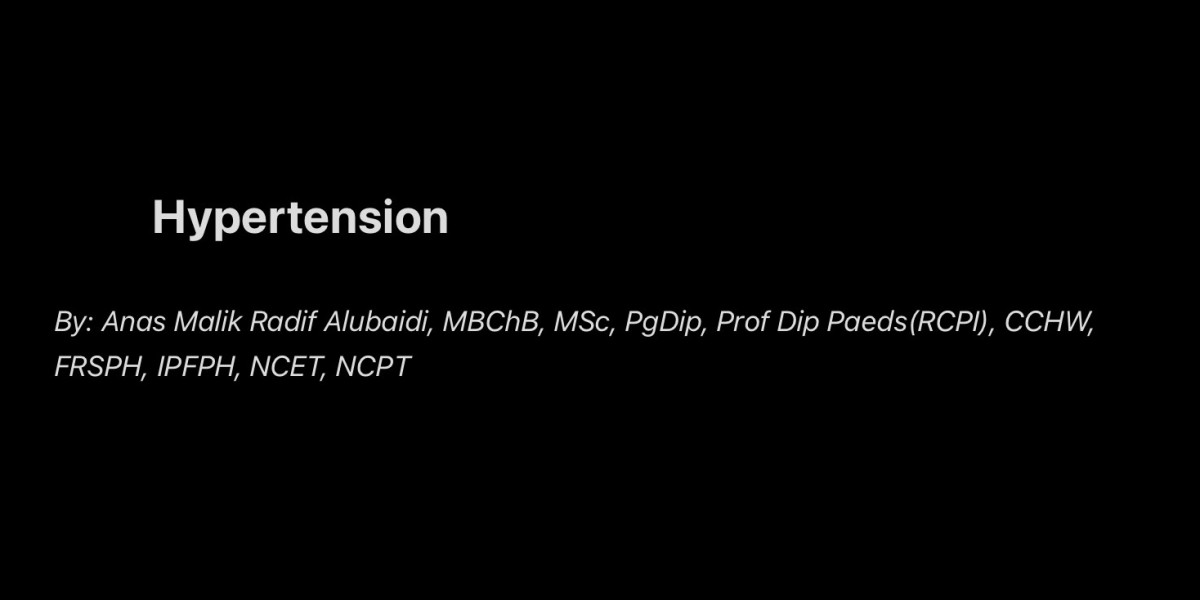- Introduction:
Hypertension, which is the terminological term for high blood pressure is when the body’s blood pressure to be high as 140/90 mmHg or higher. Hypertension is common but if left untreated then serious medical consequences and complications could happen (WHO, 2023).
- Keywords:
Hypertension; High Blood Pressure; Lifestyle Modifications; Salt Intake; Angina; Heart Attack; Stroke
- Epidemiology:
- An estimate of 1.28 billion within the age group of 30 to 79 years old worldwide have hypertension (WHO, 2023).
- An estimate of 46% of the adults who have hypertension are unaware of the condition (WHO, 2023).
- An estimate of 1 in 5 of the adults with hypertension, which is 21% having it under control (WHO, 2023).
- Hypertension is the major cause of premature deaths globally (WHO, 2023).
- The WHO African Region has the highest prevalence of hypertension (27%) (WHO, 2023).
- The WHO Americas Region has the lowest prevalence of hypertension (18%) (WHO, 2023).
- Hypertension was a primary or contributing cause of 691,095 deaths in the United States in 2021 (National Center for Health Statistics, 2023).
- A greater percentage of men (50%) have hypertension than women (44%) (CDC, 2023).
- Hypertension is more common in non-Hispanic black adults (56%) than in non-Hispanic white adults (48%), non-Hispanic Asian adults (46%), or Hispanic adults (39%) (CDC, 2023).
- Hypertension in children and adolescents is increasing in prevalence (Falkner B, 2010)
- Risk Factors:
Modifiable risk factors which include unhealthy diets, physical inactivity, consumption of tobacco and alcohol, and overweight or obesity (WHO, 2023).
Non-modifiable risk factors which include a family history of hypertension, age over 65 years and associated diseases such as diabetes mellitus or renal disease (WHO, 2023).
Risk factors for hypertension (high blood pressure) include a range of lifestyle choices and genetic predispositions. Some of the key risk factors (Dr. Karthikeya T M, no date):
- Age: The risk increases as the individual gets older, particularly after age 50.
- Family History: A family history of hypertension raises the risk.
- Lack of Physical Activity: Sedentary lifestyle can lead to higher heart rate and increased risk.
- Unhealthy Diet: Diets high in salt, calories, saturated fats, and trans fats can contribute to hypertension.
- Overweight or Obesity: Excess weight can cause the heart to work harder and increase blood pressure.
- Alcohol Consumption: Drinking too much alcohol can raise blood pressure over time.
- Tobacco Use: Smoking and chewing tobacco can temporarily raise blood pressure and damage artery walls.
- Stress: Long-term stress may contribute to hypertension.
- Certain Chronic Conditions: Conditions like diabetes, renal disease, and sleep apnea can increase risk.
- Lifestyle modifications:
The modifications that are needed to be implemented and applied into the lifestyle to control and manage the hypertension include:
- Eating a healthy, low-salt diet.
- Losing weight.
- Being physically active.
- Quitting tobacco.
- Prevention:
Some key strategies for preventing hypertension:
- Maintain a Healthy Weight.
- Regular Physical Activity (CDC, 2023).
- Healthy Diet: Eat a diet rich in fruits, vegetables, whole grains, and low-fat dairy products (CDC, 2023).
- Reduce Sodium Intake.
- Limit Alcohol Consumption (CDC, 2023).
- Avoid Tobacco (CDC, 2023).
- Managing Stress.
- Get Enough Sleep (CDC, 2023).
- Regular Health Screenings: Regular check-ups with your healthcare provider can help detect any early signs of hypertension and manage it effectively.
- Medications to be considered in treating hypertension:
Medications might include:
- Beta blockers like Atenolol, which reduce heart rate.
- Diuretics like Bumetanide, which help eliminate excess sodium and fluid.
- ACE inhibitors like Lisinopril, which widen blood vessels.
- ARBs like Losartan, which relax blood vessels.
- Calcium channel blockers like Amlodipine, which reduce the amount of calcium entering the heart muscles.
It’s important to manage hypertension as it can lead to serious health issues like heart disease, stroke, and kidney damage over time (Dr. Karthikeya T M, no date).
- Complications of uncontrolled hypertension:
- Angina (WHO, 2023).
- Heart attack (WHO, 2023).
- Cardiac failure (WHO, 2023).
- Irregular heartbeat which can lead to sudden death (WHO, 2023).
- Stroke (WHO, 2023).
- Renal damage (WHO, 2023).
- Renal failure (WHO, 2023).
- The Prognosis of the Hypertension:
The prognosis of hypertension, or high blood pressure, mostly depends on its management and control. When left untreated, hypertension can lead to serious health complications such as heart disease, stroke, and renal failure. However, with proper treatment and lifestyle changes, individuals with hypertension can manage their condition effectively and reduce the risk of these complications. Some key points regarding the prognosis include early detection, lifestyle modifications, regular monitoring, medication adherence, and complication prevention (Lorna Collier, 2021).
- Recommendations:
Managing hypertension effectively involves a combination of lifestyle modifications and, if necessary, pharmacological treatment. Here are some recommendations based on the latest guidelines (S. Lindsey Clarke, 2023):
Lifestyle Modifications:
- Diet: Follow a heart-healthy diet like the DASH (Dietary Approaches to Stop Hypertension) diet, which is rich in fruits, vegetables, whole grains, and low in saturated fat and cholesterol.
- Salt Intake: Reduce salt intake to help lower blood pressure levels.
- Physical Activity: Engage in regular physical activity, such as 150 minutes of moderate-intensity exercise per week.
- Weight Management: Maintain a healthy weight or aim for weight loss if overweight.
- Alcohol: Limit alcohol consumption to moderate levels.
- Smoking: Quit smoking to improve overall heart health.
Pharmacological Treatment:
- Medication: If lifestyle changes are not sufficient, medications such as ACE inhibitors, ARBs, beta-blockers, calcium channel blockers, and diuretics may be prescribed.
- Blood Pressure Targets: The standard blood pressure target is generally less than 140/90 mm Hg, but a lower target may be considered based on individual risk factors and patient preferences.
Monitoring and Follow-Up by regular Check-Ups: Monitor blood pressure regularly and follow up with healthcare providers to adjust treatment plans as needed.
- Declaration:
This work was completed in partial fulfillment of a PgDip in Family Medicine course with Learna, validated by the University of Buckingham.
- References:
- Centers for Disease Control and Prevention (CDC), 12th May 2023. Hypertension Cascade: Hypertension Prevalence, Treatment and Control Estimates Among U.S. Adults Aged 18 Years and Older Applying the Criteria from the American College of Cardiology and American Heart Association’s 2017 Hypertension Guideline—NHANES 2017–2020. Atlanta, GA: May 12, 2023. Accessed on: 27 March 2024.
- Centers for Disease Control and Prevention (CDC), 17th March 2023. Prevent High Blood Pressure. [Online]. Available at: https://www.cdc.gov/bloodpressure/prevent.htm. Accessed on: 28th March 2024.
- Karthikeya T M, no date. High Blood Pressure. [Online]. Available at: https://www.msn.com/en-us/health/condition/High-blood-pressure/hp-High-blood-pressure?source=conditioncdx. Accessed on: 29th March 2024.
- Falkner B. Hypertension in children and adolescents: epidemiology and natural history. Pediatr Nephrol. 2010 Jul;25(7):1219-24. doi: 10.1007/s00467-009-1200-3. Epub 2009 May 7. PMID: 19421783; PMCID: PMC2874036.
- Lorna Collier, 4th June 2021. High Blood Pressure: Prognosis and Life Expectancy. [Online]. Available at: https://www.healthgrades.com/right-care/high-blood-pressure/high-blood-pressure-prognosis-and-life-expectancy. Accessed on: 4th April 2024.
- National Center for Health Statistics, 8th September 2023. Multiple Cause of Death 2018–2021 on CDC WONDER Database. Accessed on: 27th March 2024.
- Lindsey Clarke, October 2023. Hypertension in Adults: Initial Evaluation and Management. [Online]. Available at: https://www.aafp.org/pubs/afp/issues/2023/1000/hypertension-adults.html. Accessed on: 8th April 2024.
- World Health Organization (WHO), 16th March 2023. Hypertension. [Online]. Available at:https://www.who.int/news-room/fact-sheets/detail/hypertension#:~:text=Overview,get%20your%20blood%20pressure%20checked. Accessed on: 21st March 2024.
By:
Anas Malik Radif Alubaidi, MBChB, MSc, PgDip, Prof Dip Paeds(RCPI), CCHW, FRSPH, IPFPH, NCET, NCPT
*Bachelor of Medicine and General Surgery/ University of Baghdad
*Master of Science in Public Health/ University of South Wales
*Postgraduate Diploma Degree in Acute Medicine/ University of South Wales
*Postgraduate Diploma Degree in Care of the Elderly/ University of Wales Trinity Saint David
*Professional diploma in Pediatrics/ Royal College of Physicians of Ireland
*Nevada Board Certified Community Health Worker
*Fellow of the Royal Society for Public Health
*International Practitioner Member of the Faculty of Public Health
*National Certified ECG Technician
*National Certified Phlebotomy Technician




Mohammed Nishad S 22 w
"Your dreams are the blueprint of your future. Build them with passion, determination, and persistence." — Nishadklbm